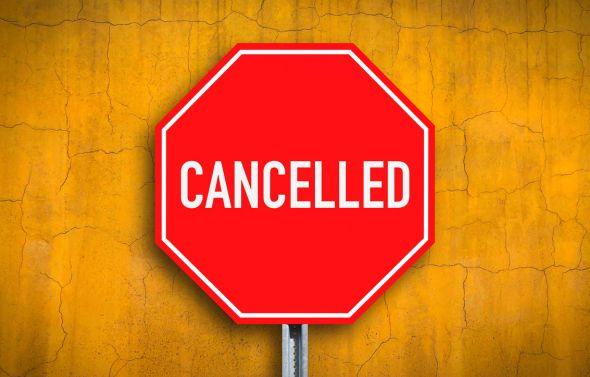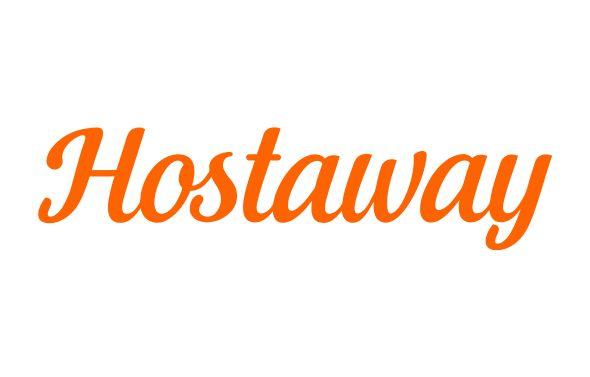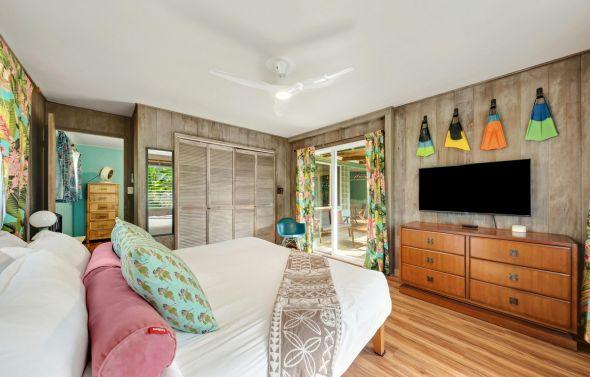Airbnb vs Booking.com | The Key Hosting Differences

Not sure whether to list your property on Airbnb or Booking.com? You're not alone. These two vacation rental platforms dominate the market — but they cater to different guests, offer different tools and operate in ways that can seriously impact your short-term rental business.
Airbnb, with over 8 million active listings in 2025, is often seen as the go-to for homey, local stays. Booking.com, with 20.1 million unique monthly visitors and 28 million listings globally is the hotel-style giant expanding rapidly into the vacation rentals space.
This article breaks down the key hosting differences — from guest expectations and cancellation policies to payout methods and how bookings are handled. Whether you manage one property or an entire portfolio, knowing how each platform works will help you make smarter choices, avoid common pitfalls and boost guest satisfaction.
Let’s dive in.

Airbnb vs Booking.com at a Glance
While both Airbnb and Booking.com cater to the short-term rental market, they attract different types of guests, offer different tools for hosts and come with unique strengths. While Airbnb leans into storytelling, design and brand connection, Booking.com is built for volume, speed and efficiency.
Here’s a quick side-by-side to highlight the key differences:
Category | Airbnb | Booking.com |
Platform style | Design-led, brand-driven, personal connection | Hotel-style, volume-focused, fast and efficient |
Guest demographic | Millennials & Gen Z, plan-ahead, style-conscious | Broader mix: families, tourists, business travelers, last-minute bookers |
Booking behaviour | Longer stays, higher ADR, experience-led | Shorter stays, price-sensitive, high booking volume |
Types of property | Entire places, private rooms, shared spaces | Hotels, resorts, lodges, vacation rentals |
Host type | Boutique owners, property managers, individuals building a brand | Profesional managers prioritizing streamlined ops |
User experience | Messaging-focused, curated experiences | Instant book, admin-light, minimal interaction |
Commissions/fees | Split fee model: ~15% total, host + guest | 15–25% paid by hosts |
Payout system | Airbnb handles payment and sends payouts to hosts | Varies: Payments by Booking.com or Online Payments |
Host protection | AirCover: $3M damage protection + $1M liability | Up to $1M liability per booking |
Strengths | Brand loyalty, creative freedom, higher ADR | Larger reach, more bookings, low-touch management |
Best fit for | Hosts building a brand or guest experience | Hosts scaling with minimal guest interaction |
Airbnb vs Booking.com: What Types of Accommodation Do They Offer?
Both Airbnb and Booking.com offer a wide range of vacation rentals, but they differ in vibe and variety.
Airbnb is known for its personality-packed stays. Alongside apartments and homes, you’ll find treehouses, castles, windmills and more in its “OMG!” category. You can book an entire place — or share a room to save on cost.
Booking.com leans more traditional. While it started with hotels, it now includes homes, apartments, resorts and tiny houses too. It doesn’t spotlight quirky stays like Airbnb, but it does offer travel extras like flights, car rentals and bundled bookings.
In short, Airbnb shines for one-of-a-kind experiences, Booking.com wins on options and convenience.

How Do Airbnb Guests Differ from Booking.com?
Understanding the guest behavior on each platform is essential for choosing the one that fits your hosting style. While both attract travelers from around the world, Airbnb and Booking.com serve very different guest expectations, booking patterns and levels of interaction.
Who are the guests?
Airbnb tends to attract younger, experience-driven travelers — especially Millennials and Gen Z. These guests often travel solo or with friends and are drawn to properties that feel unique, personal or local. They're looking for charm, character and storytelling.
Booking.com guests are more varied in age and travel type. Families, mature travelers and business tourists make up a large portion of its audience. They're often seeking straightforward accommodations with predictable service.
What do they expect?
Airbnb guests value a “home-away-from-home” feel. They often want to connect with their hosts, ask pre-booking questions and enjoy one-of-a-kind properties. Many are open to home shares, minimal services and even quirky amenities — so long as they know what to expect.
Booking.com guests generally expect hotel-like amenities, private entrances, 24-hour check-in, complimentary toiletries and little to no host interaction. They might not realize they’re booking a vacation rental and mismatched expectations can sometimes lead to guest reviews that reflect that.

How do they book?
Airbnb travelers usually book weeks in advance — especially around holidays and school breaks. They’re planners, often staying three nights or longer. Booking a place is a considered decision, often made after a few messages with the host.
Booking.com users are impulsive bookers. Many reservations are made just a few days before check-in. This makes Booking.com perfect for last-minute gaps in your calendar, especially in urban or tourist-heavy areas.
Where are they from?
Airbnb dominates in the U.S., with 61% of American travelers using the platform. It's ideal if you’re targeting a domestic or North American audience.
Booking.com is stronger in Europe, where it has long been a go-to site for international travelers and city-hoppers. If your property is in a European market, Booking.com may deliver more consistent, year-round traffic.
Airbnb vs Booking.com: guest breakdown
Category | Airbnb | Booking.com |
Typical guest | Millennials, Gen Z, digital nomads, solo travelers | Families, older travelers, international tourists |
Guest expectations | Unique stays, authentic vibe, personal communication | Efficiency, clear policies, hotel-style amenities |
Communication style | Pre-booking Q&As, lots of messaging | Minimal interaction before arrival |
Guest reviews | Two-way, hosts can rate and review guests as well | Hosts cannot review guests |
Control over bookings | Hosts can vet guests, turn off Instant Book and decline bookings | All bookings are auto-confirmed, instant bookings. |
Booking lead time | Booked weeks in advance | Often booked days in advance (last-minute) |
Stay duration | 3+ nights on average | Shorter stays more common |
Booking motivation | Experience-led, “home-away-from-home” feel | Location, pricing and efficiency-driven decisions |
Platform presence | Strong in U.S. (61% of U.S. travelers use Airbnb) | Strong in Europe |
Host considerations | Requires time for guest communications, more transparency and guest history | Less control over guest quality, fewer touchpoints |
How to Create Airbnb Listings that Standout from the Competition | Hostaway Webinar
How to Create an Account and Listing on Booking.com vs Airbnb
Both Airbnb and Booking.com make it relatively easy to get started — but the experience feels very different. Airbnb guides you through a host-friendly, story-driven setup. Booking.com takes a more data-focused, hotel-style approach.
Here’s a quick side-by-side checklist so you know exactly what to expect from each:
Listing setup checklist
Setup step | Airbnb | Booking.com |
Create host account | Email, Google, Apple, Facebook | Email, Google or business credentials |
Guided listing flow | Yes – step-by-step with tool tips | No – manual form-based process |
Photo upload + descriptions | Prompted throughout setup | Required before going live |
Cancellation policy selection | Simple dropdown with explanations | Must select a policy manually |
Payment setup | Airbnb handles payment + payouts directly | Requires connecting payout method or enabling credit card payments |
Room/unit configuration | Choose a full space or shared room | Must specify rooms, guest capacity and if each room is listed separately |
Listing approval wait | Instant (once complete) | Manual verification before going live |
Bulk upload for multiple listings | Limited capability | Available and optimized for volume |
Ability to pause & return later | Yes | No (data entry is continuous) |
Ease of use for beginners | Very user-friendly | Better suited to experienced property managers |
How do the platforms work on desktop vs. app?
The Airbnb app is great for quick tasks like messaging guests or checking availability. But for managing house rules, cancellation terms or applying a split fee, you’ll need to use the desktop. Some tools are only available there — especially if you manage multiple properties.
Booking.com relies on its Extranet for almost everything. The Pulse app handles guest messages and alerts, but setting up a non-refundable policy, launching promotions or adjusting listings across different sites all happens on desktop. It’s built for speed and scale — ideal for growing your vacation rental business.

What kind of support and resources do they offer?
Airbnb provides a user-friendly Help Center with visual guides, updates and step-by-step articles — perfect for Airbnb hosts building a brand or learning new features.
Booking.com’s Partner Hub is more technical, with in-depth content on cancellation terms, rate strategies and scaling tools — ideal for hosts managing a portfolio of properties.
The difference? Airbnb supports creativity, Booking.com supports efficiency.
How do Airbnb and Booking.com Compare on Service Fees?
Airbnb and Booking.com both charge hosts a fee per reservation, but the structure (and impact) is different depending on which platform you’re using.
Airbnb service fees
Airbnb offers two models: the split fee and the host-only fee.
With the split fee, Airbnb charges the guests a fee of around 14% of the total booking price, while hosts pay around 3%.
With the host-only fee, hosts cover the full cost — typically 14–16% — while guests aren’t charged anything extra.
The host-only fee is now the default for most hosts outside the U.S., Canada and a few other countries. This pricing model makes the total booking price more transparent to potential guests, which can lead to more bookings — even though it reduces what the host earns per stay.
Booking.com commission fees
Booking.com runs on a flat commission-based model. Hosts pay between 10%–25%, depending on location and property type, with 15% being the most common rate. Guests don’t pay a service fee to Booking.com — they only see the final price you set.
Booking.com also allows you to charge your guests extra fees like cleaning or linen fees, which helps offset commission costs.
Unlike Airbnb, Booking.com issues monthly invoices for commissions rather than deducting them automatically. If a non-refundable booking is waived, the commission may be adjusted accordingly.
Which platform is more expensive?
In most cases, the costs are similar — Airbnb’s host-only fee and Booking.com’s average commission both hover around 15%. However, how those costs are presented to guests can impact their behavior. Airbnb’s all-in-one pricing improves transparency, while Booking.com’s guest-facing price may look lower upfront.
To maintain margins on either platform, the obvious choice for many property owners is to increase their nightly rate or offer amenities to justify the price.
How do Airbnb and Booking.com handle payment issues?
Airbnb takes care of everything — collecting payment, handling credit card details and releasing your earnings 24 hours after the check-in day via your selected payout method. If there’s a last-minute cancellation or guests don't show up, Airbnb’s policies help protect your income (based on your cancellation settings).
Booking.com, however, usually leaves payment up to you. You’ll receive the guest’s credit card details after a booking, but they’re only visible for 10 days. If a guest cancels or doesn’t show — and you haven’t processed payment — you may lose out entirely.
Airbnb centralizes payments while Booking.com gives you control, but with more risk.

How do Airbnb and Booking.com Handle Host Payouts?
When it comes to payment protection, Airbnb offers simplicity while Booking.com gives you more control, along with more responsibility.
Airbnb payouts
Airbnb collects credit card information, charges the guests and releases your earnings 24 hours after guests check-in. Payouts are sent via your selected payout mode, such as PayPal, bank transfer or prepaid cards. For longer stays (28+ days), Airbnb issues monthly payments.
You’ll receive your booking earnings minus the Airbnb's commissions, with VAT or taxes deducted where applicable. It’s hands-off and predictable.
Booking.com payouts
Booking.com offers two payment methods:
Payments by Booking.com: The platform charges guests directly and sends you a guaranteed bank transfer.
Online Payments (semi-automated): You let guests pay online or at the property, but manage the charge yourself.
If you don’t enable Payments by Booking.com, you’ll need to handle guest payments manually — using their credit card information, which are only visible for 10 days after booking.
How to protect your payouts on Booking.com
If you're not using Payments by Booking.com, you're in charge of collecting payments — and that comes with risk. To avoid losing revenue from no-shows, fake bookings or cancellations, there are a few smart steps you can take.
1. Require card details
Log in to your Booking.com Extranet
Go to Property > Policies
Select Guest payment options
Enable: “Do you accept debit or credit cards?” → Yes
Choose accepted cards (Visa, Mastercard, etc.)
Disable: “Allow domestic guests to book without credit card details”
This ensures guests must provide valid payment info before a reservation is confirmed.
2. Set up Stripe
For even more control, consider using a payment processor like Stripe — especially if you’re already using Hostaway, which integrates directly. Stripe allows you to securely collect prepayments, automate charges and verify cards in real-time.
This adds a safety net for Booking.com reservations where Payments by Booking.com isn’t active.
3. Require deposits or prepayments
Charging a prepayment or deposit before check-in helps you confirm the card is valid, filter out fake or uncommitted guests and cover part of your loss in case of a last-minute cancellation
You can automate this with Stripe or add it manually in your cancellation terms or listing terms.

Airbnb cancellation policies
Airbnb has more structured options, with upfront payment and predictable refunds.
Policy | What it means for guests | What it means for hosts |
Flexible | Full refund up to 24 hours before check-in | Paid for each night stayed + 1 extra night after late cancellation |
Moderate | Full refund up to 5 days before check-in | Paid for nights stayed + 50% of remaining nights |
Firm | Full refund 30+ days before check-in. 50% if 7–30 days before | Paid 100% if canceled within 7 days |
Strict | Refund only within 48 hrs of booking and 14+ days before check-in | Paid 50% (7–14 days), 100% if canceled later |
Non-refundable | No refunds at any time | Host keeps full payout |
Long-term (Flexible/Strict) | Designed for stays of 28+ days, allows partial refunds with notice | Pro-rata payouts depending on when the guest cancels |
Super Strict (30/60 Days) | By invitation only, strictest refund policies | Hosts retain up to 100% payout depending on policy |
Booking.com cancellation policies
Booking.com leans more guest-friendly by default, so hosts often need to add extra layers of protection manually.
Policy | What it means for guests | What it means for hosts |
Fully flexible | Free cancellation until a deadline you choose | No payout if guest cancels in time |
Custom policy | You define the cancelation window and fee structure | Control over partial or full charges depending on timing |
Non-refundable bookings | Guest pays full amount even if they cancel or are a no-show | You keep 100% of the reservation fee (if payment goes through) |
Extra protection options on Booking.com
These tools can help you charge guests or secure earnings, especially when not using non-refundable bookings.
Feature | What it means for guests | What it means for hosts |
Deposit required | Guest pays part of stay upfront, refunded only if they cancel in time | You keep the deposit after free cancellation window ends |
Prepayment required | Guest pays part or all of stay in advance, non-refundable after a set deadline | Guarantees a payout even if guest cancels late |
Pre-authorization | A temporary hold is placed on the guest’s credit card | Confirms card validity, must be manually charged or released |

Airbnb vs Booking.com: How are Guest Disputes Handled?
When things go wrong, how each platform handles conflict can make or break your hosting experience.
Airbnb has a centralized Resolution Center where hosts can file claims for property damage, request reimbursement for missing items and communicate directly with support. The process is guided and relatively structured, though response times can vary. Hosts upload evidence (like photos or receipts) and Airbnb steps in to mediate if needed.
Booking.com, on the other hand, takes a more hands-off approach. Hosts are expected to manage rude behavior, no-shows or house rule violations on their own. If something goes wrong, you can report the issue — but you're unlikely to receive direct reimbursement through the platform. That means it’s up to you to collect evidence, set clear policies and charge guests directly if needed.
Airbnb handles resolution in-platform. Booking.com expects you to absorb the risk — or build your own system to manage it.
Airbnb vs Booking.com: How Accessible is Support for Hosts?
When something goes wrong, fast, reliable support can make or break a reservation, especially for hosts managing high volume.
Airbnb support is available via the app, desktop or phone. Most Airbnb hosts can reach someone fairly quickly and those with larger portfolios often get priority routing. Airbnb tends to step in sooner during disputes or urgent issues, especially if you're trying to resolve a damage claim or an issue with a booking.
Booking.com offers support through the Partner Hub, the Pulse app, email or phone. While help is available, response times can be slower — particularly when problems fall outside technical issues. Hosts are expected to self-manage more and platform intervention is less proactive.
Both platforms offer account managers or dedicated partner contacts, but access typically depends on location and booking volume.
If you need quick answers and hands-on help, Airbnb tends to respond faster. Booking.com offers more control, but you'll likely spend more time handling issues solo.

What about Host Protection?
When it comes to protecting your property, Airbnb has a stronger built-in safety net thanBooking.com — but both platforms still expect you to take precautions.
Airbnb provides AirCover for Hosts, which includes up to $3 million in damage protection and $1 million in liability insurance. If a guest damages your property and refuses to pay, you can file a claim through the Resolution Center with photos, receipts and message history. While it's not a replacement for third-party insurance, it does offer structure and support.
Booking.com now offers free liability insurance for partners — up to $1 million globally — but doesn’t include automatic damage protection. If a guest breaks something, you're on your own unless you've set up a damage deposit or use a third-party processor to charge guests.
Airbnb handles property damage in-platform. Booking.com expects you to prevent it, prove it and recover the cost yourself.

Scalability and Automation Tools
Managing one vacation rental is a hustle. Managing three or more? That’s a business — and one that needs systems.
If you're listing across Airbnb, Booking.com and other platforms, switching between dashboards and manually updating each calendar or replying to every guest message quickly becomes overwhelming. That’s where all-in-one software with a property management system (PMS) and channel management like Hostaway comes in.
Instead of logging in separately to update pricing or check for double bookings, a PMS pulls everything into one dashboard. Your calendar regularly syncs across platforms. Messages are streamlined. Reservations, rates and availability update in real time.
Here’s what automation can do for growing hosts:
Unified inbox: Manage all guest messages in one place
Automated messaging: Send check-in info, reminders or review requests based on booking activity
Dynamic pricing sync: Push rate changes across platforms instantly using dynamic pricing tools
Calendar syncing: Prevent double bookings with real-time updates
With the right tools, tasks that once took hours now take minutes — leaving more time to focus on scaling, improving operations or boosting your guest reviews.

Airbnb vs. Booking.com: Where Should You List Your Rental?
Here’s the truth, you don’t have to choose.
Airbnb and Booking.com serve different audiences, offer different strengths and come with their own quirks. Airbnb is great for brand-building, longer stays and personal touches. Booking.com delivers international visibility, steady volume and short-stay consistency. Each one fits a slightly different piece of the vacation rental business puzzle.
But if you want to reduce risk, increase reach and fill more dates? The real power lies in listing on both.
With a multi-channel strategy and the right tools in place you can keep control, avoid double bookings and maximize performance across platforms. That flexibility gives you the edge in today’s competitive market.
So don’t just pick a side. USe software like Hostaway to build a system that lets you thrive on both of them.